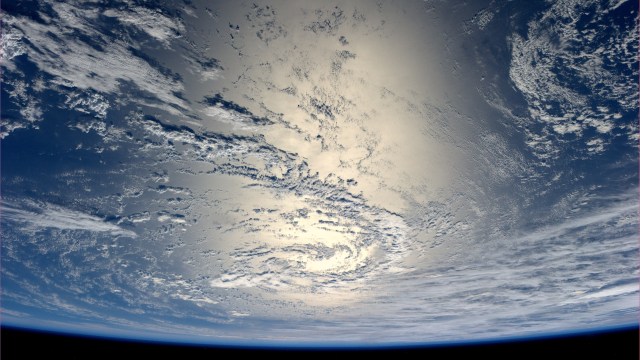Yes, Science Is For The Religious, Too

There is no reason for science and faith to be hostile to one another.
If you want to figure out how the Universe works, you have to ask. Not by asking some authority figure, but by finding a way to ask the Universe itself: to theorize an idea and to test it, via thorough experiments, observations, and measurements. The ability to formulate an idea, to infer and calculate what the physical implications of that idea are, to gather data that tests those implications, and to then draw conclusions is the hallmark of scientific thinking.
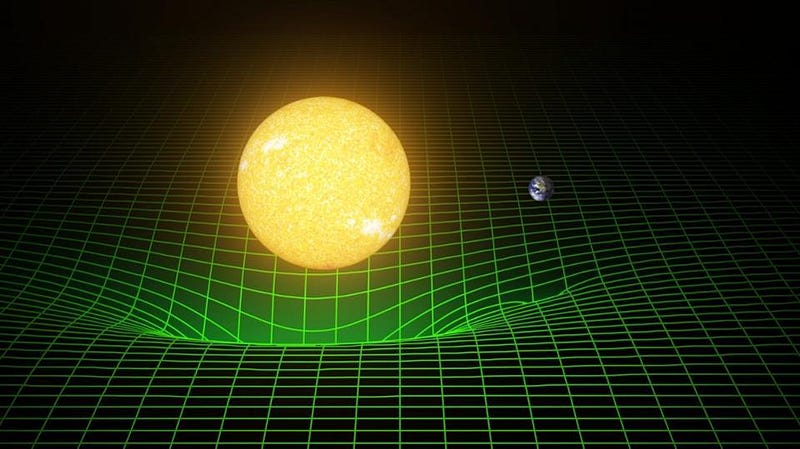
The scientific method insists on taking this steps in a rigorous, repeatable fashion, and teaches us the scientific answer to any question we’re clever enough to ask. Science is both the method of investigation and the full suite of knowledge we gain from asking such questions, with the joys and wonder of discovery open to everyone. Despite the widespread perception that science and religion conflict with each other, the overwhelming majority of people experience no such conflict. Anyone can learn how to investigate the world like a scientist, and a scientist can belong to any religion. Around the globe, this is exactly what the data shows.
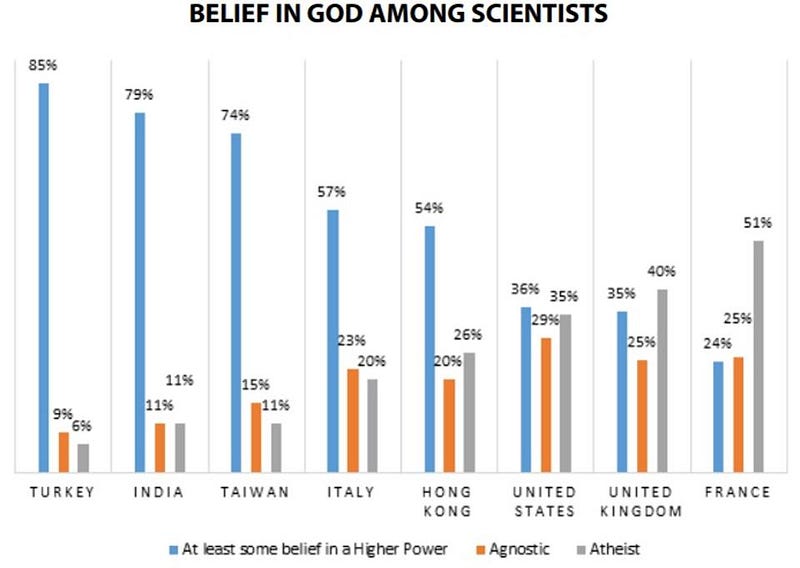
What the data also shows is that most people have litmus tests — a mental shorthand they use — for determining whether someone is trustworthy, a good person, or has ideas worth listening to. For some people, these tests might include whether someone:
- believes in the existence of God or not,
- adheres to or rejects the same religious beliefs as you,
- believes in the same origin story for the Universe or humanity as you,
- attends or does not attend religious services,
- or whether they pray regularly.
Yet the answers to these questions very rarely have anything to do in determining someone’s trustworthiness, moral compass, curiosity, or quality of ideas, just as they have nothing to do with determining whether someone can become a good scientist or not.
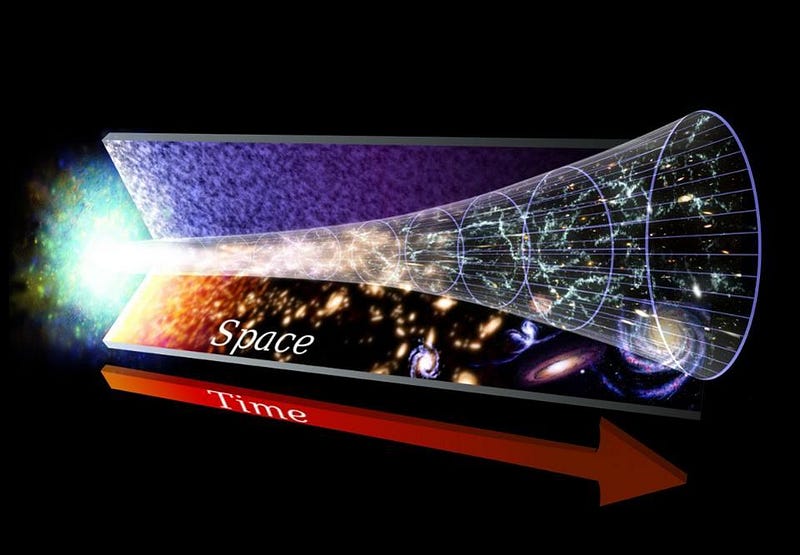
There’s a public perception that’s harmful to everyone: that science is hostile to faith, and that religious people aren’t interested in science. Yet this is not what the data shows at all. While there certainly exist scientists that are elitist and antagonistic towards religion, the vast majority of scientists share the same levels and types of religiosity as the other members of their country’s culture. While there are a number of religious people who have no interest in science, widespread surveys indicate that most religious people support science quite strongly.
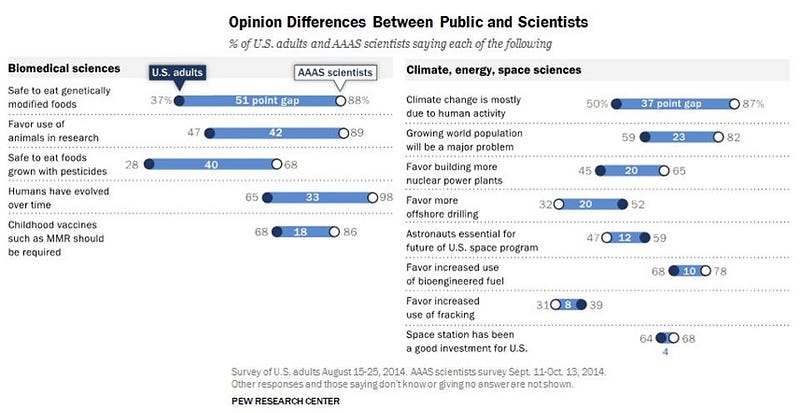
In fact, according to a study on Scientists and Society, of the people in the United States who identify as religious:
- 87% of them are “very interested” or “moderately interested” in new scientific discoveries,
- 85% of them support government funding for basic scientific research, and
- 89% have “some confidence” or “a great deal” of confidence in scientific conclusions.
To push the viewpoint that religion and science are inherently at odds not only does a great deal of damage to the integrity of both, it runs contrary to people’s actual, lived experiences.
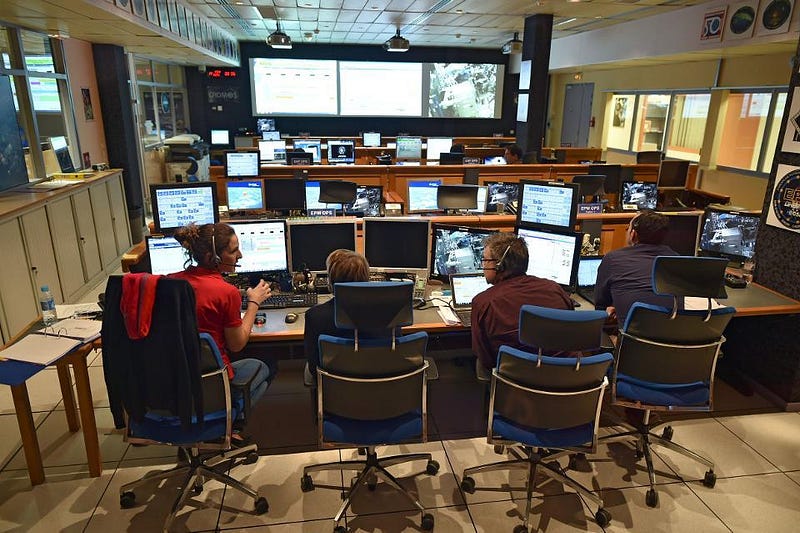
At the same time, there are overall positives to being a religious person, where roughly three out of four Americans self-identify as religious. Large studies have shown that religious people are more likely to:
- volunteer their time and resources towards altruistic causes,
- attend local government meetings,
- and to participate both politically and in community-driven initiatives.
With 77% of Americans claiming that religion is either “very important” or “somewhat important” in their daily life, it’s vital that people treat one another with the respect they’re due for the good deeds and positive impacts they have on the world.

While there are elements of society that are quick to brand anything religious as “anti-science” or anything scientific as a “threat to your religion,” the truth is that people of all different religious beliefs and upbringings grow up to be outstanding scientists. The truth is that scientists have religious beliefs that are in-line with the rest of their country. There is no universal religious perspective or experience, and that we all have ways of making personal connections with each other, and finding common ground for building trust and mutual respect. It’s time to put an end to the insensitive, snide, and snarky remarks that denigrade those with differing beliefs from our own, and to work together to educate, share knowledge, and respect the diversity of possibilities for what we don’t know.
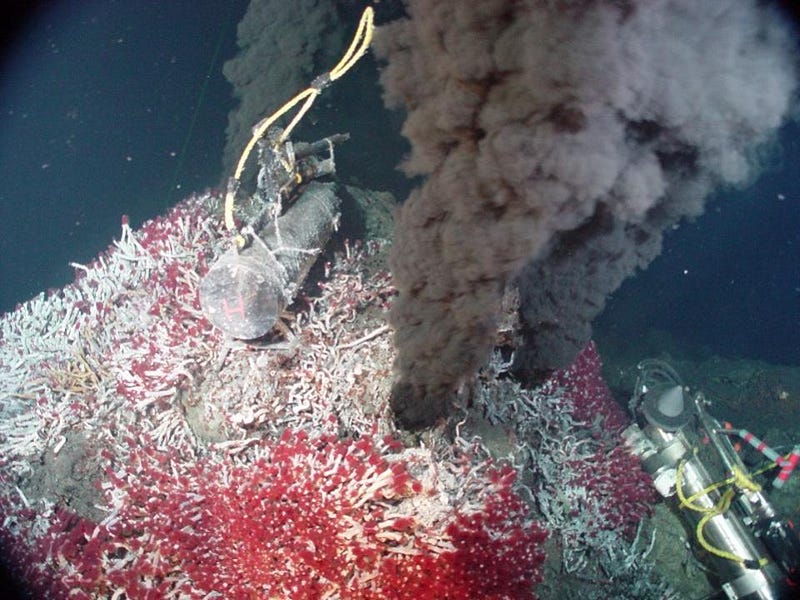
The truth of the matter is that there are certain unknowables in this Universe; certain questions that even if we gathered all the data we could ever gather, we’d be unable to answer. The amount of information we have access to is enormous, but finite nonetheless. There will always be room for wonder, and there will always be questions beyond humanity’s capabilities of drawing robust scientific conclusions. Most importantly, there will be differences in what each of us determines is the “most likely” or “most logical” possibility in the absence of certainty, and that we must treat one another with respect, even when we reach different conclusions.
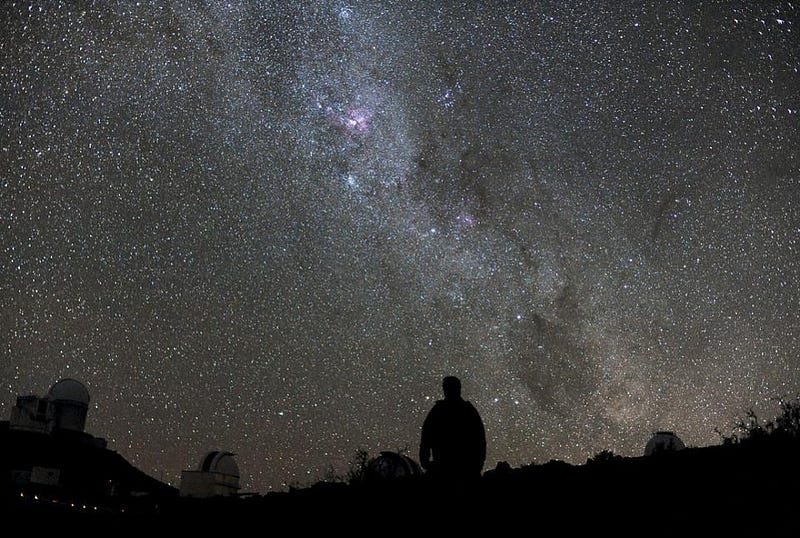
Religion is for anyone who wants it in their life, and science is as well. They are neither fundamentally incompatible, nor are they mutually exclusive. Knowledge, education, self-improvement, and the bettering of our shared world are endeavors that are open to everyone. We don’t have to (and likely won’t) always agree with one another, but we can always work to understand a perspective that differs from our own. Perhaps, someday in the near future, that will be the story that makes headlines, rather than attempts to sow discord between two of the most influential forces for good in our world.
Ethan Siegel is the author of Beyond the Galaxy and Treknology. You can pre-order his third book, currently in development: the Encyclopaedia Cosmologica.





